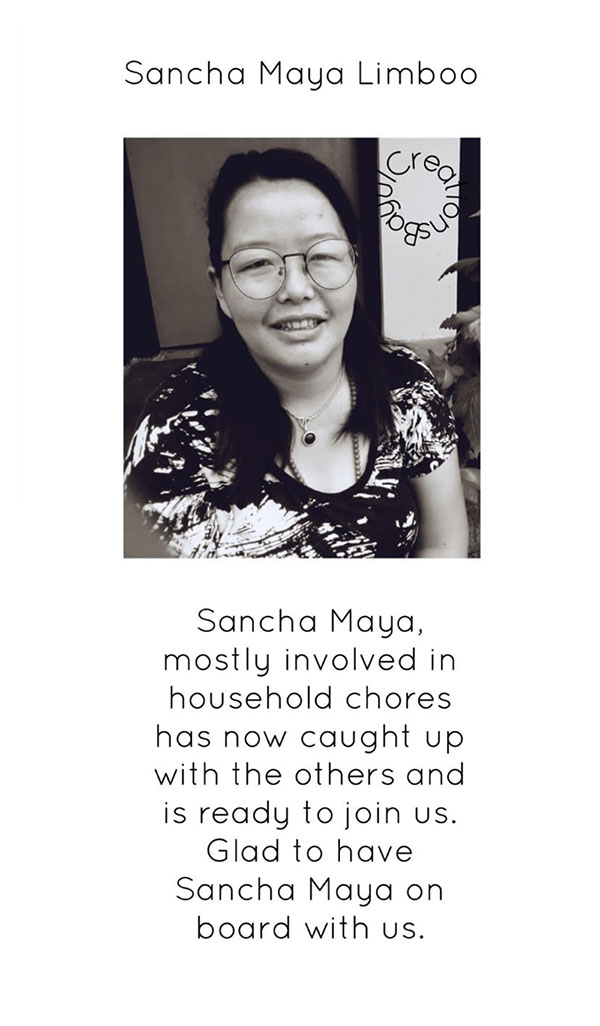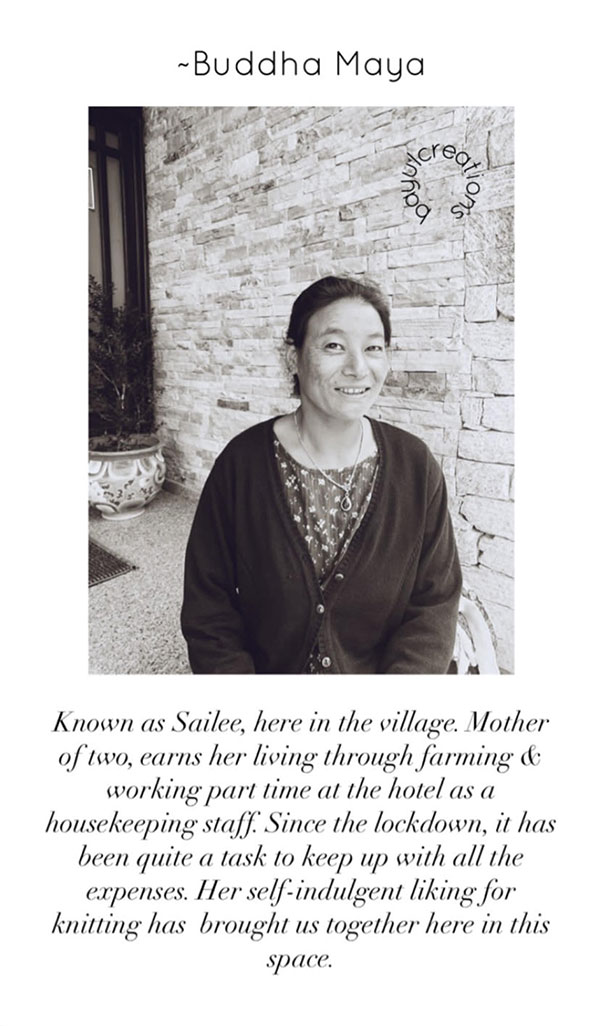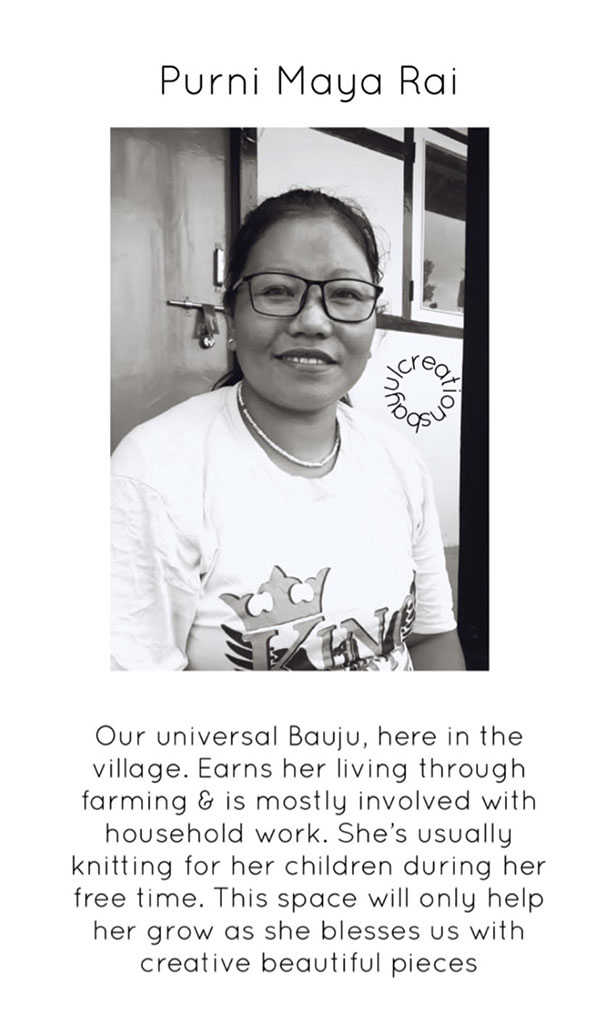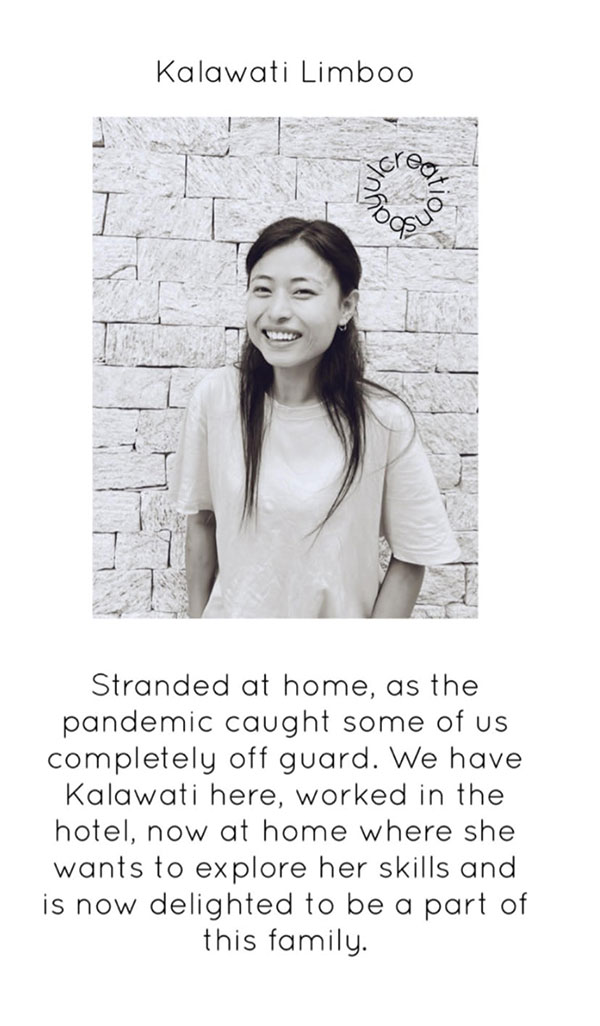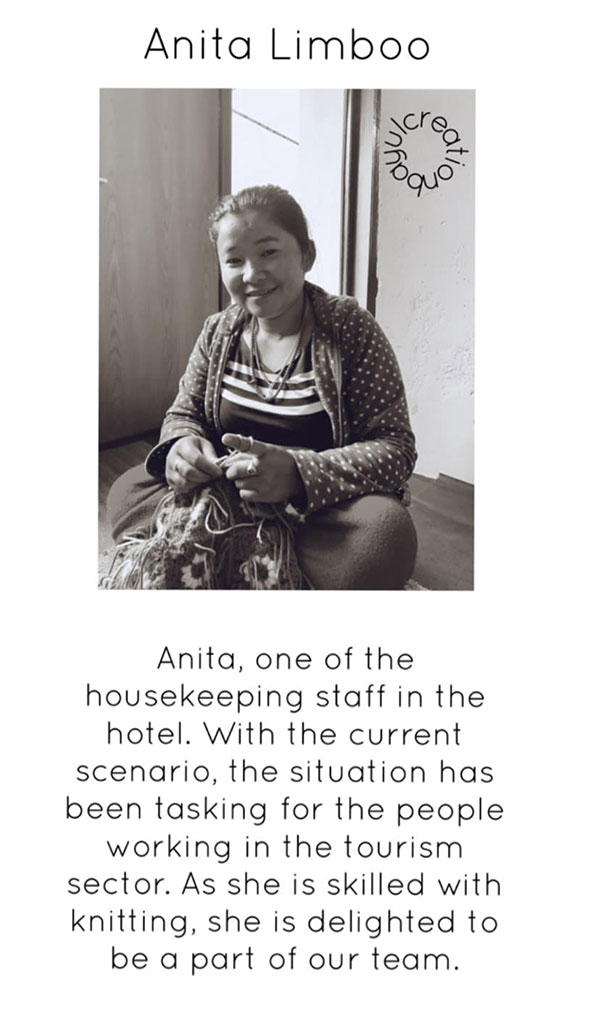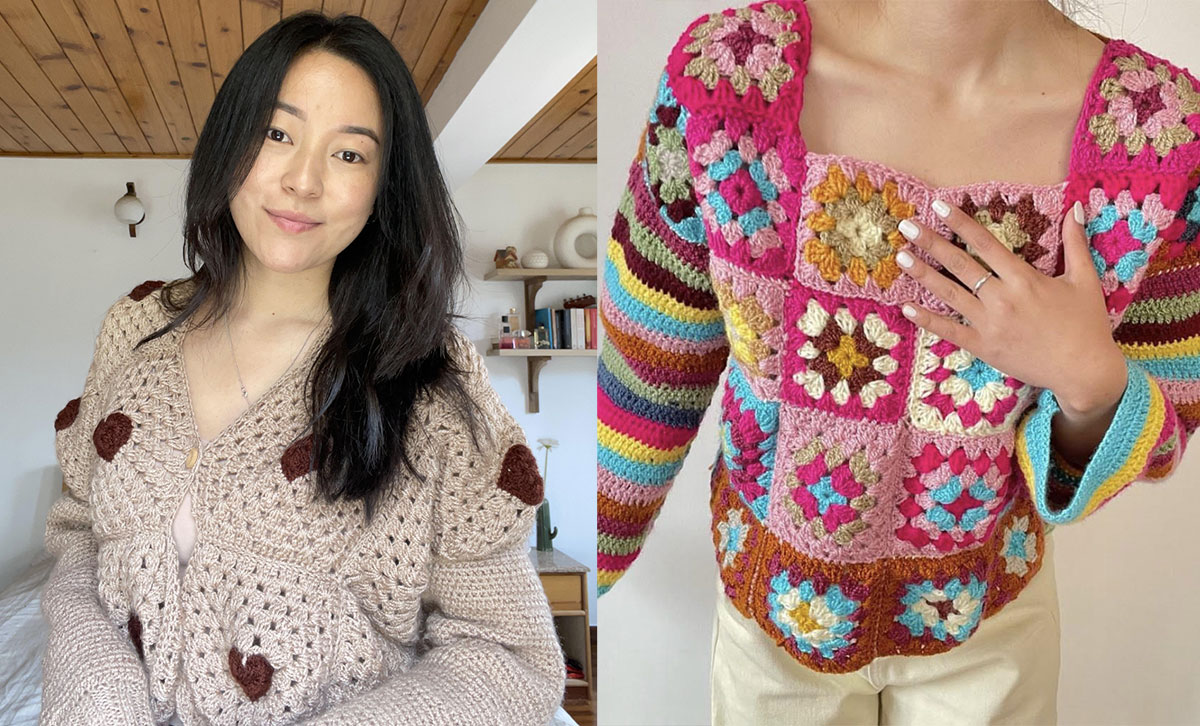
Phuntsok Ongmoo Bhutia, 28, begins her day with wool. And ends it as well. This girl from Chumbong village in Pelling, a remote hamlet in the western part of Sikkim is unlikely to forget “that'' look on her mother’s face when, one afternoon in 2021, she returned home from a nearby market with bags overloaded with wool. That’s an unusual sight given the image she had at home, of an ambitious girl wishing to work in an international organisation.
Bhutia was far from knitting. She never entangled herself with wool. The last she knitted was in her seventh standard in her school in Kalimpong, a misty hill station on the foothills of the Himalayas in West Bengal. But what her mother saw that particular day was something that would go on to define who she really is: someone who would initiate a quiet revolution at the grassroot level.
Bhutia’s life changed in more ways than she could have ever imagined. Covid came and changed the course of her life. She was all set with plans to sit for the civil service examinations, and stayed in Delhi soon after her graduation in Delhi University and then a masters from JNU. She headed home just before the lockdown. That’s when she reconnected with knitting. She also had time to reflect. “If all I wanted to do was to work in an organisation to bring about positive change, I thought to myself that here is the biggest opportunity in my home, and that I could begin right here,” she says. That led her to gather herself and what she learnt in her SUPW class came handy.
She started crochet knitting and realised the potential of this skill in a cold place like Sikkim. She knew the basics and taught herself more designs with the help of YouTube. She immediately got in touch with a young girl in her village. The girl in turn called other girls who in turn informed their relatives and friends. Soon, a group of girls gathered and the process of knitting began. One of them was a professional at knitting and taught the girls to finer designs. She distributed the wool to the girls who immediately got on to knitting in a crochet. That’s how Bayul Creations was born. Bayul is a Buddhist word meaning “secret land”. And now, with a boutique that stocks the products, it looks like Bhutia is all set to take crochet on a new scale. She tells The Northeast Stories what it means to knit a brand-new dream…
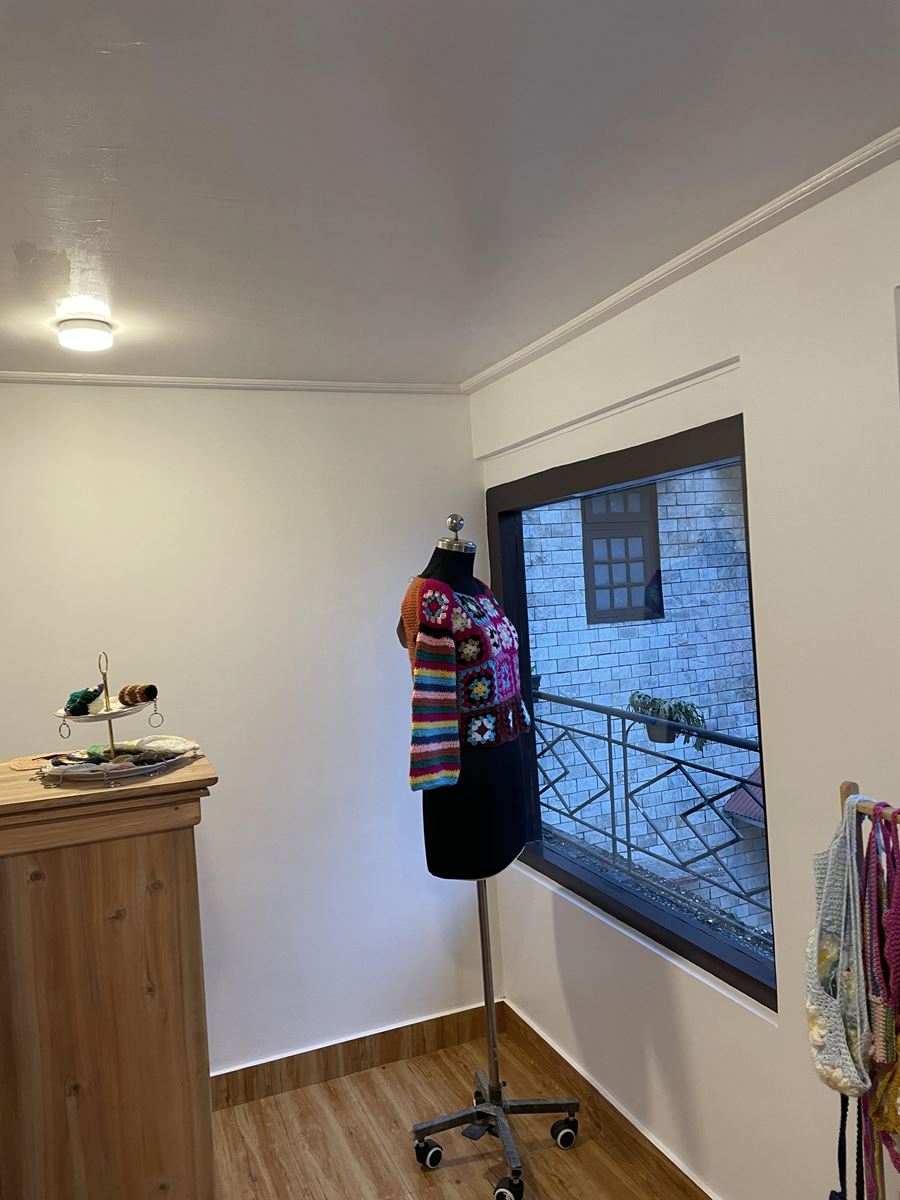
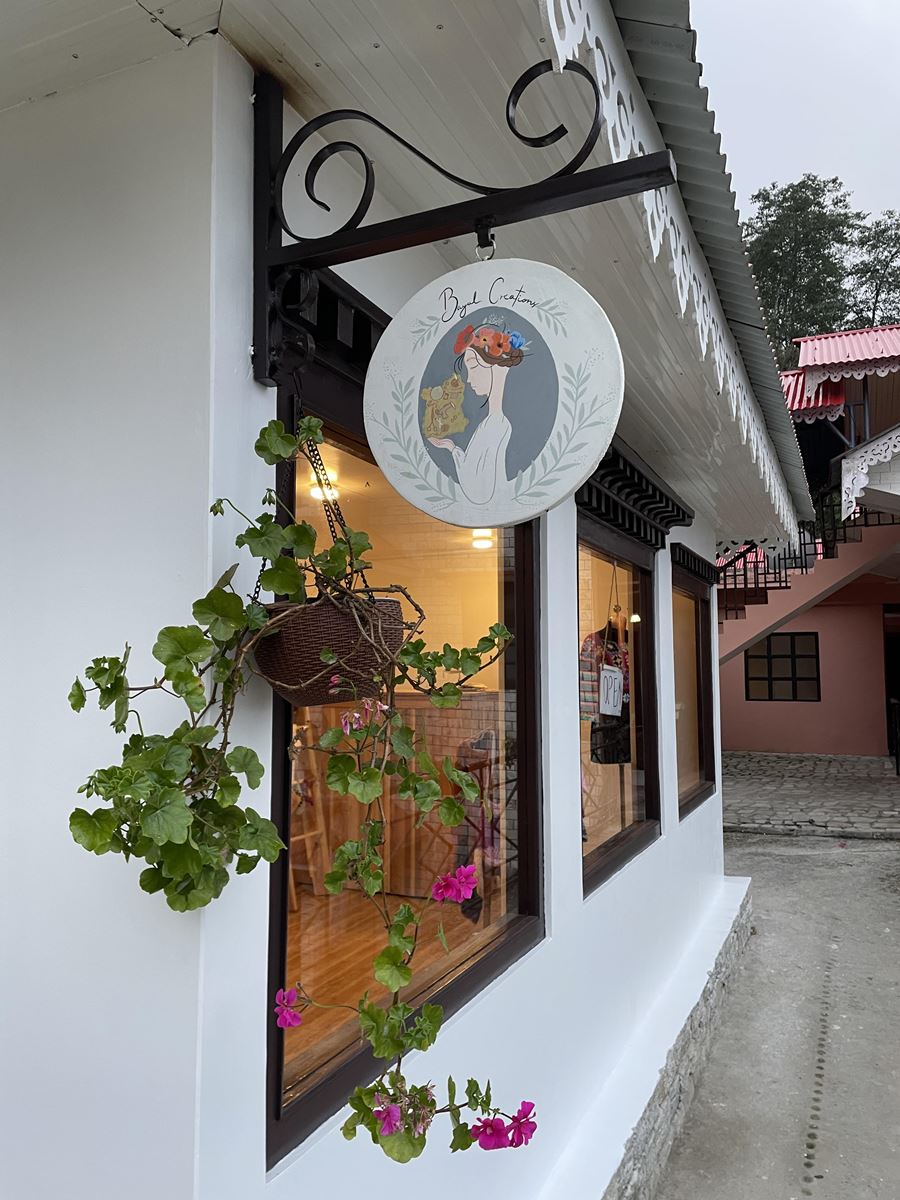
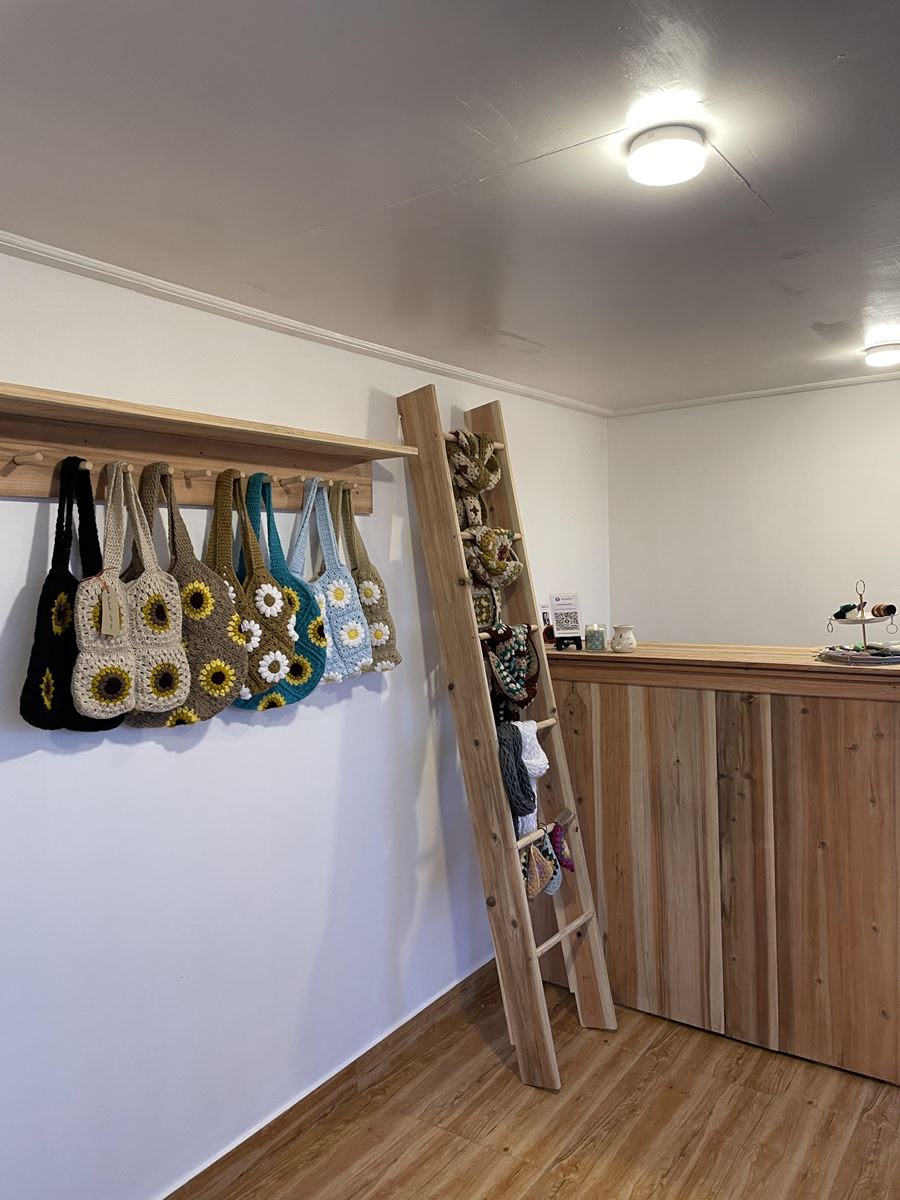
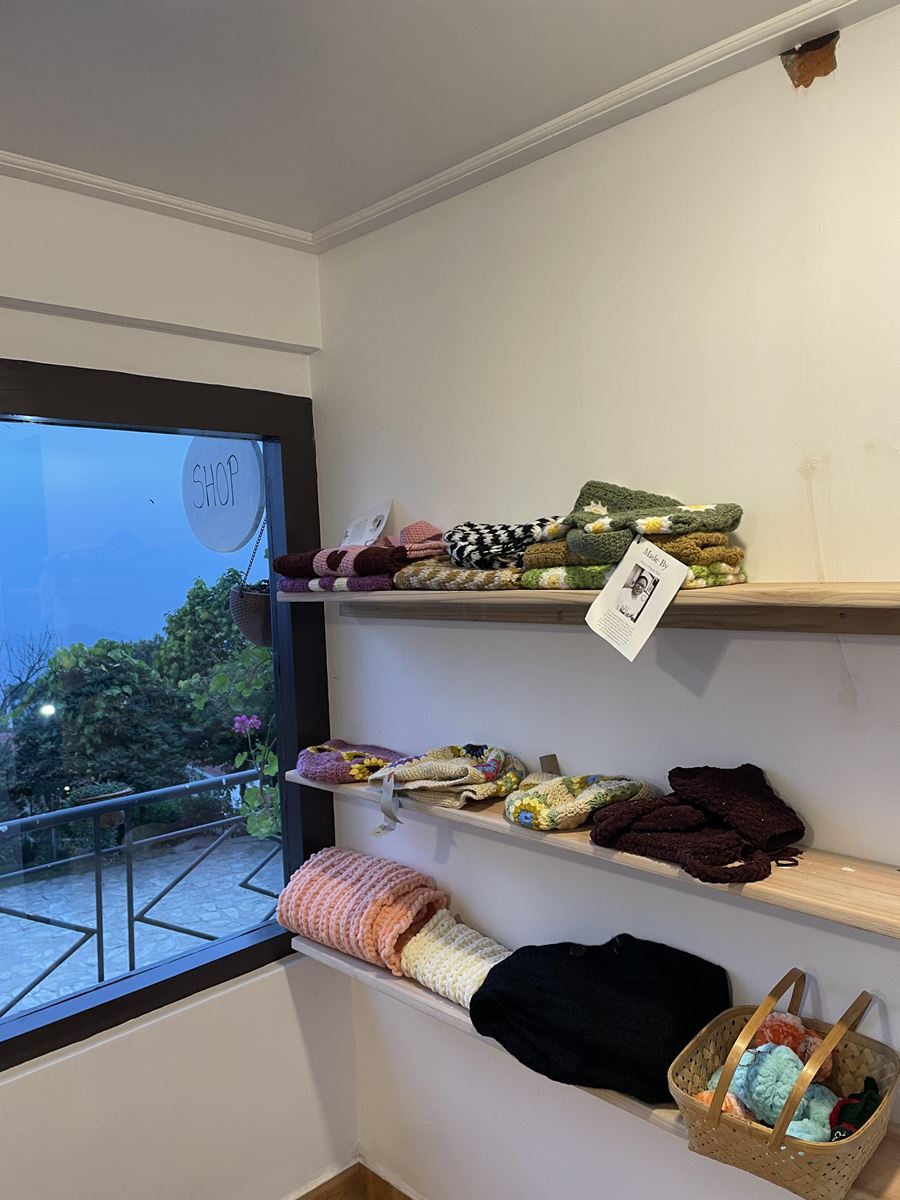
“Bayul Creations” — the secret land. The chain started with one girl who brought others in, and it now hopes to create a safe space for them. What were the first steps that started this chain reaction?
Chumbong, a km from Pelling, is a famous tourist place and knitting is something many girls knew but it was not something they did actively. Once I got in touch with a girl from my village, more girls came by and we formed a group. It felt like a chain was formed immediately. I distributed the wool, we got our design intervention through YouTube and, with great excitement, started knitting. The team members all knitted at home, at their own pace, and soon we had enough products to be displayed on our online store.
At the same time, I had started an Instagram account and posted our products. There was an ad with minimum payment. which I opted for, and soon I got an overwhelming response from different parts of India. That encouraged me and I had no idea of the impact and reach technology offered. Our first product, a hand-knitted purple tote bag was sold at Rs 899. We were bombarded with messages, and friends started ordering. In a year, we fulfilled more than 500 orders. We started out with a capital worth Rs 2600. And today I'm sitting with over 500 orders. But I wish we have a centre for knitting, for women to come together and bond with this activity. It may not be full-time, but a space that would allow women to come as and when they can and be self-reliant — this is my dream.
Academia, crocheting, entrepreneurship. How does a life of academia lead to such an unconventional career path?
I attended St. Joseph’s Convent, Kalimpong for my early education before graduating from Delhi University with a Bachelor's Degree in Political Science, followed by a Master's Degree in International Relations from Jawaharlal Nehru University. After my bachelor’s degree, I went for international relations because it was the paper that I was most interested in within Political Science. I wanted to learn how we can develop the Indian arts and crafts and gain a comparative advantage in certain industries. I sought to study more about international organisations and work for one that could create a lasting impact on our society. But when I moved back home after completing my studies, I realised that the work I have always aspired to do can be done right here in the heart of Sikkim at the ground level and with our skilled craftswomen.
And it is my educational background that’s given me the right approach and strategy to be able to plan things. While entrepreneurship is new in this part of the country, people are even more surprised that I would be knitting. The general mindset has to be reset to allow such unconventional engagements. It is definitely an ongoing challenge that I have been facing.
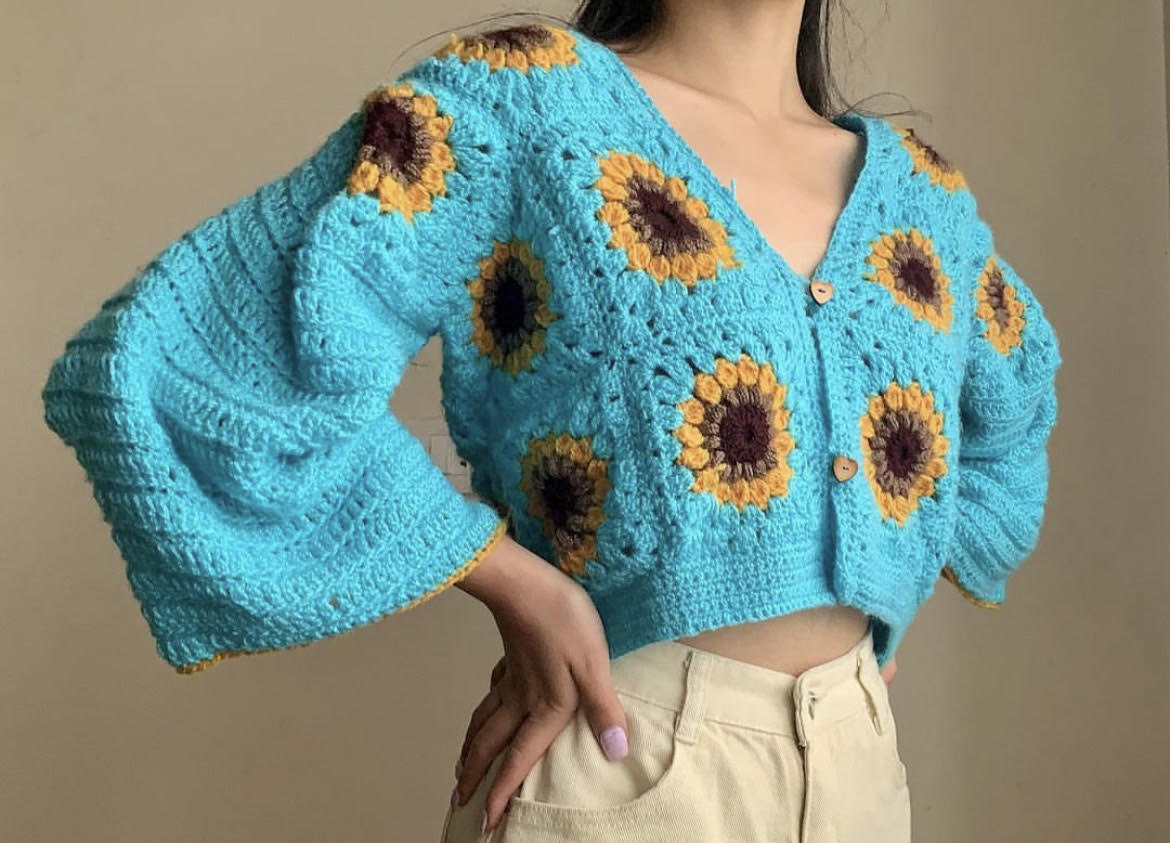
What is the philosophy behind the brand Bayul Creations?
Bayul Creations is an emerging start-up, based out of Chumbong, a remote village in western Sikkim, pushing for the propagation of hand-woven crochet products with an aim to empower rural women. In its essence, Bayul is about making simple, conscious choices that transform your style and can improve many lives. Even when it comes to the design, it is about revolutionising everyday outfits in a way that the beauty of the handmade craft amplifies the tranquillity brought by making more positive and sustainable changes to your wardrobe and to your being. Our personally crafted products bring slow fashion to doorsteps, allowing simple elegance into daily living. Bringing slow fashion to your doorstep, ameliorating the way elegance is induced in your daily living with personally crafted products reflective of the sui generis factor that makes you, you.
A sense of urgency and a leap of faith. How did the pandemic push you to face life head on and push off with your idea for Bayul Creations?
The Pandemic was a big teacher. It made me realise that you shouldn’t wait for what comes your way but take a step forward and start with what you think you want to do.
The challenges I faced were that after completing my studies, with the unemployment rising in the country, it was stressful to wait for a job to come my way. The pandemic made me realise that if you think you can do something, then you should go for it.
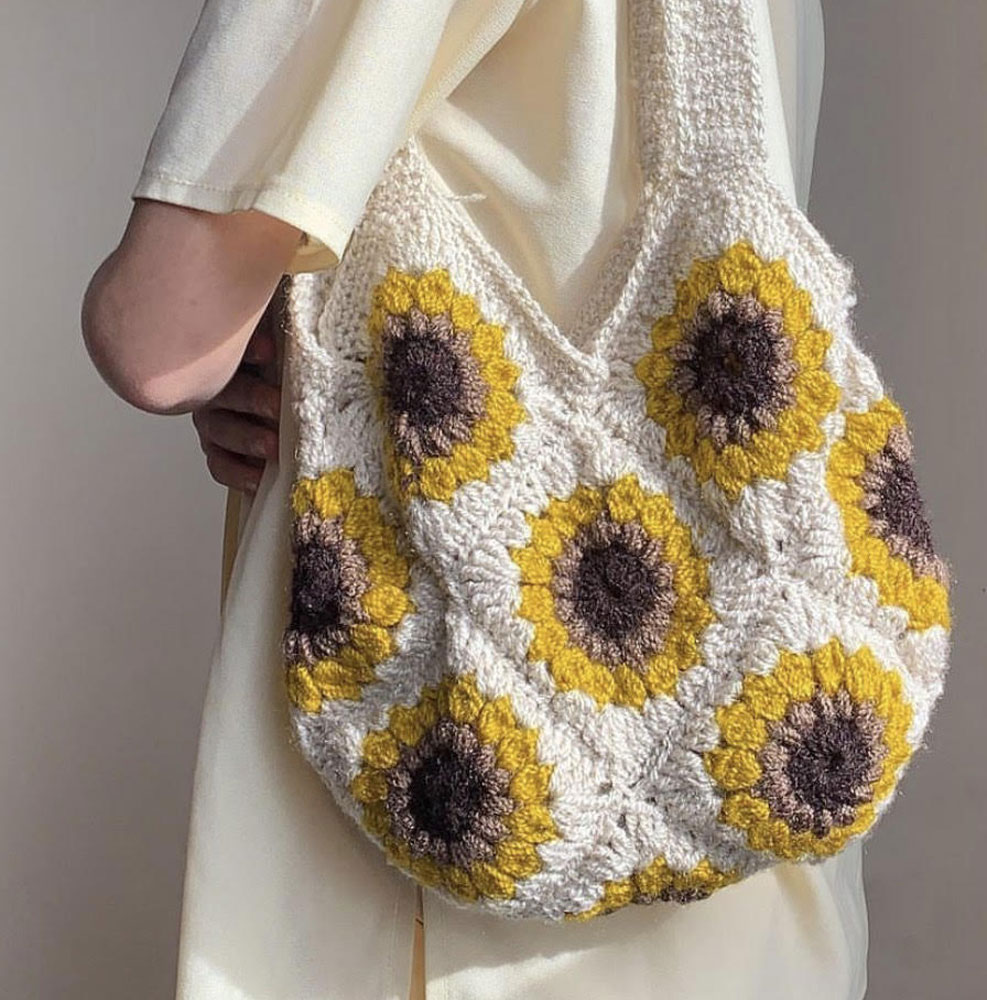
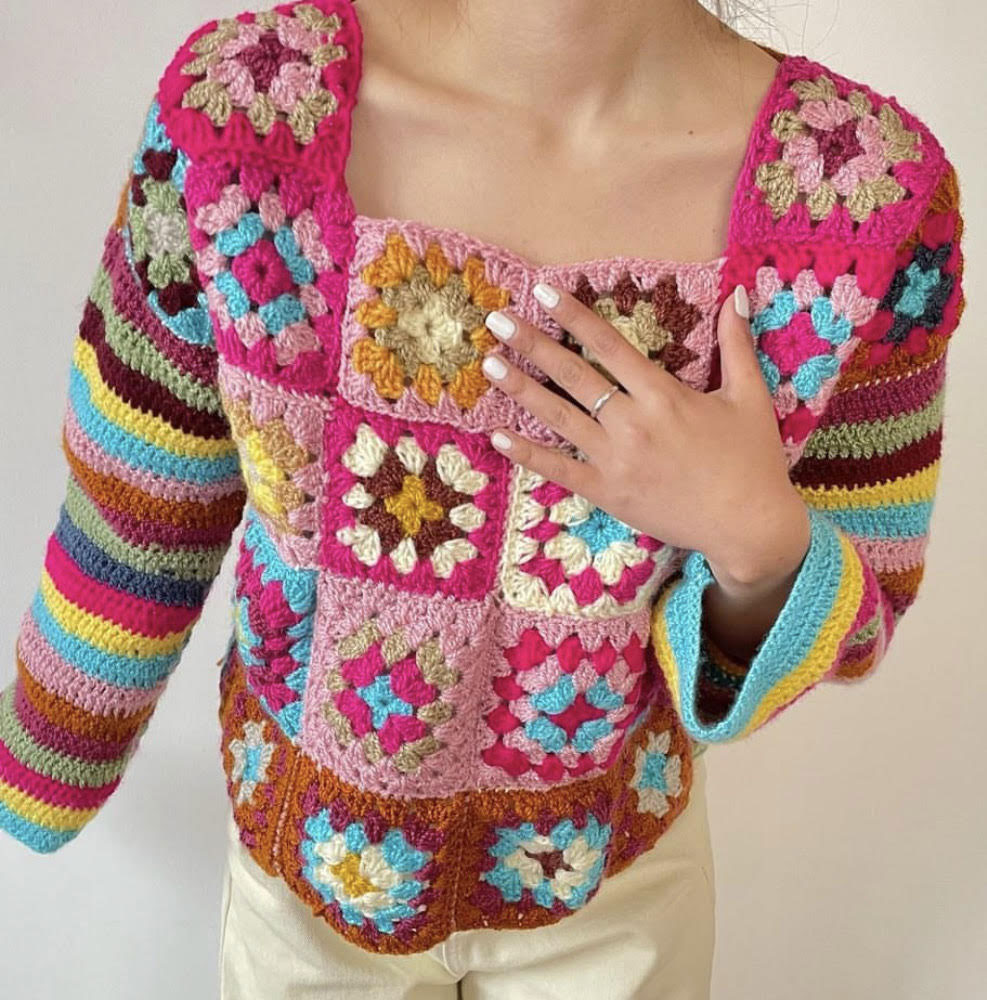

A school subject that fulfilled its aim. How did your mind go back to your crocheting days?
We learned how to crochet in our 7th grade for SUPW (Socially Useful Productive Work). I was never a keen knitter but did learn the basics there. I developed an interest for it in the later years.
Seeing crochet in a new perspective, it provided a solution — a means to be self-equipped and self-sustaining in a way. The most striking experience of crocheting is that it is purely handmade and requires one to put their heart and soul into each loop and stitch to create a whole piece – and I think that is what is the most special to me.
The spirit of Sikkim and sisterhood is at the heart of Bayul Creations. What was the binding force that brought together all the women at Bayul?
Sikkim has always been a tourism-based state and when I returned during the first Covid-19 lockdown after completing my Master’s Degree, I noticed that a great number of people were left unemployed as the state’s tourism sector saw a major downfall. I witnessed that the Sikkimese women, who used to work as housekeeping staff in hotels, were most adversely affected, many houses struggling to keep food on the table. After speaking to some of these distraught women who lost their livelihood, I realised that they can use the skills taught in our culture — perhaps, earn a living through knitting. And when I asked them if they would be interested, most of them were happy for the opportunity and agreed to try.
We soon began crafting crochet bags and as a trial, we used Instagram to introduce our product line under the brand name Bayul Creations. The response we received was quite impressive for a new brand dealing in hand-woven crochet products with such a small workforce. Nonetheless, it was encouraging to us all and filled us with greater motivation to take the craft of Sikkim to the entire country. And as our product portfolio kept widening and the demand for our work also kept rising, the potential that our Sikkimese women have to grow in this industry became even more evident.
As the women themselves realised that through Bayul, they have the opportunity to live a better life, more and more people began expressing eagerness in joining us. Thus, with the benefits that the SEED initiative offers, we believe we can grow into a dedicated business that not only celebrates the culture of Sikkim but works to empower Sikkimese women everywhere.
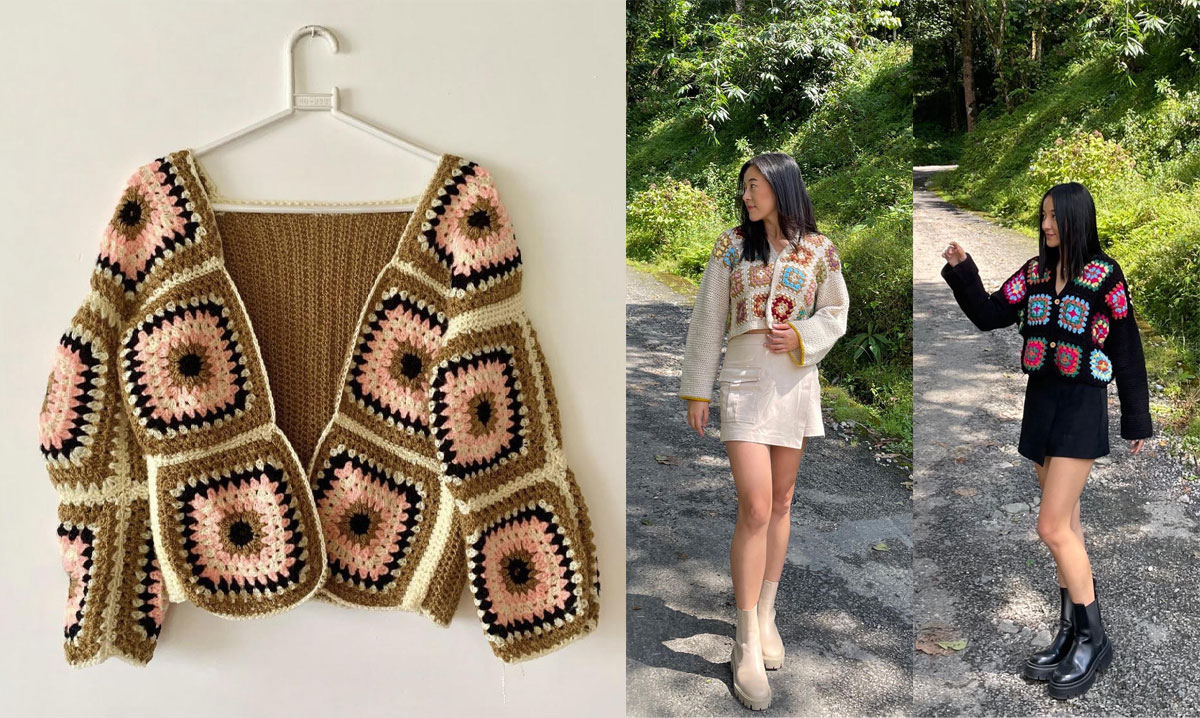
More styles, more sales, and much more to come. What kind of intervention would help you to build your capacity?
While we began with crochet bags, the impressive response nudged us to experiment further. After the initial trial period, our product line increased as we added tops, sweaters, and accessories. As our product portfolio kept widening and the demand for our work also kept rising, we knew Bayul could become bigger.
As per the business, we are a team of seven women currently working in this platform. I need to build my capacity to encourage more women. We want to create awareness among the locals, open a training centre at which we can accommodate people to conduct training courses that will equip women at homes to become self-reliant. Having a dedicated space would also ensure that women could take a break from their chores to come and knit as and when they could. This could potentially build a huge network of women who would not just connect over knitting, but have somewhere to lean on as a source of solidarity and a safe space to share their stories and encourage one another.
